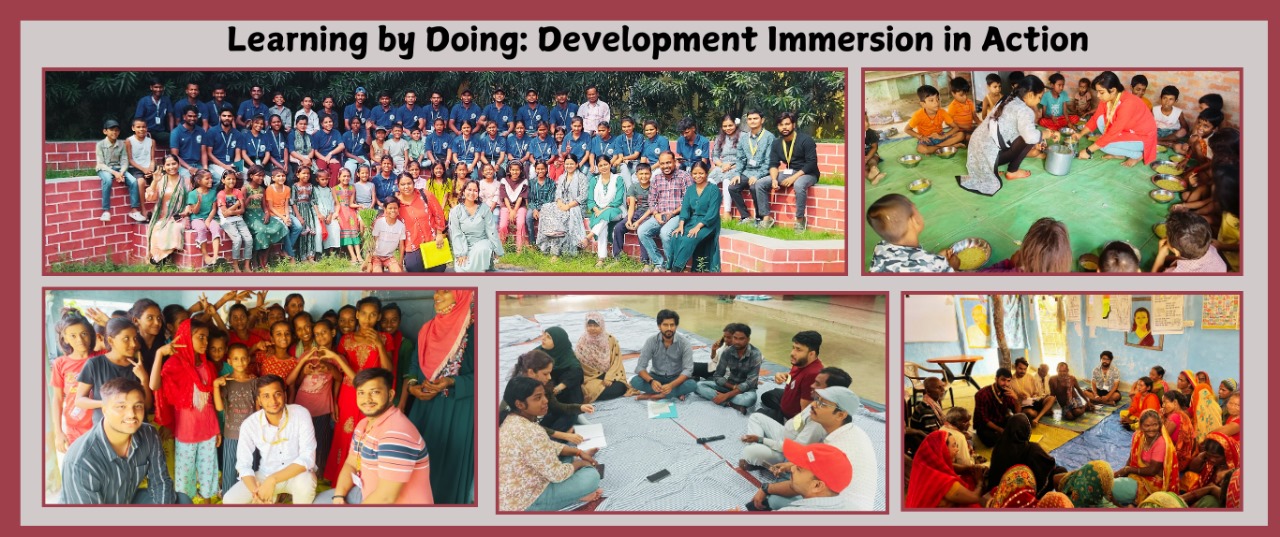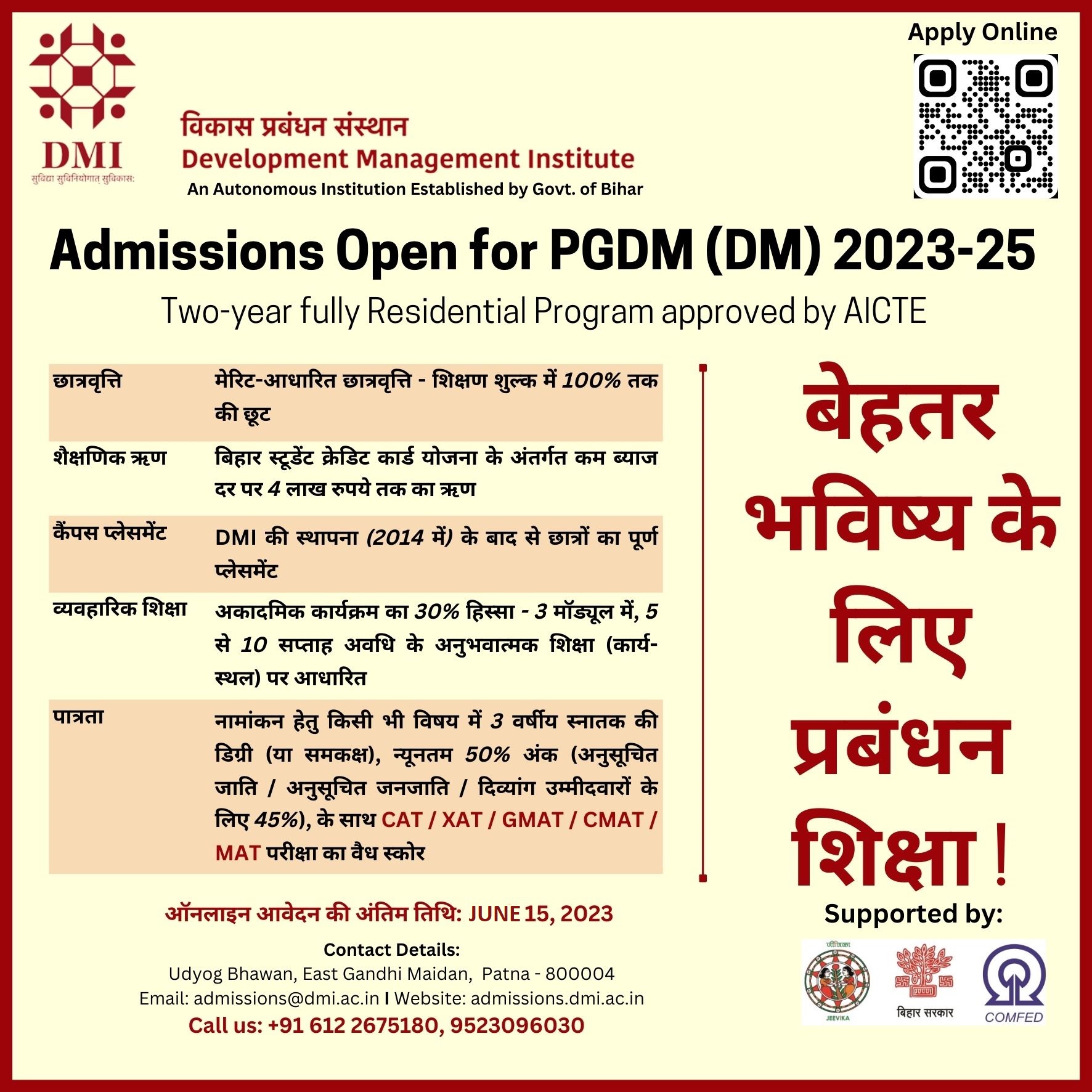
Experiential Learning consists of three components:
Development Immersion (DI), Enterprise Learning (EL) and Management Internship (MI). About 30% of the total programme duration will be devoted to Experiential Learning and practical application of knowledge & skills learned in the classroom segments.
Development Immersion : (DI)
The five weeks long Development Immersion after the first Interactive Learning Term will expose the participants to the contextual realities of the lives of the marginalised sections. It will attempt to develop in them sensitivity to the concerns of the marginalised people; help them in appreciating contraints and possibilities for sustainable development; and give them a flavour of community work at the grassroots level.
Enterprise Learning: (EL)
Enterprise Learning focuses on learning the functional aspects of participatory governance and management of collective / community / social enterprises, resources and insititutions in a comprehensive manner. This component provides an opportunity to understand the design and functioning of enterprises for the benefit of the members of collective enterprises by emphasizing user-member ownership, user-member controol and user-member benefits. It also helps in understanding the importance of member capital stakes, market integration and role of technology in enhancing livelihoods.
Management Internship: (MI)
Management Internship has at its core project based learning. Through this internship, the participants develop practical skills and realistics understanding of the managerial roles and responsibilities in sustainable development management and, in the process, support the organisations. The internship includes participants carrying out project work in sustainable livelihoods promotion, in community/ cooperative/ social collective enterprises or government / non-government organizations, or Corporate Social Responsibility (CSR) units of corporates directly engaged in sustainable development.







